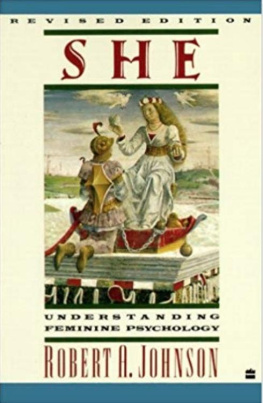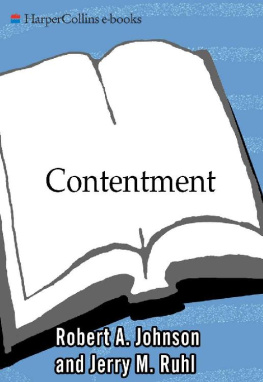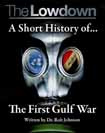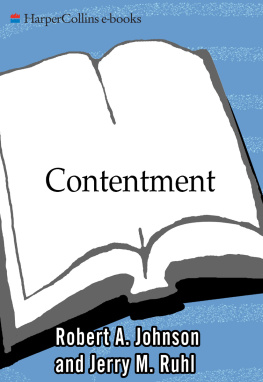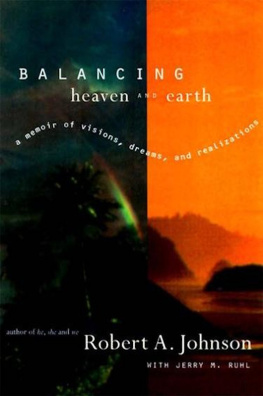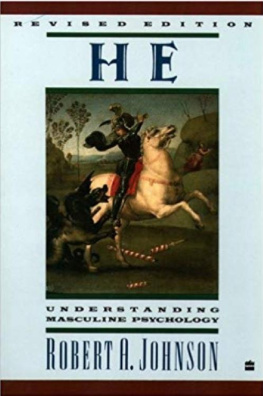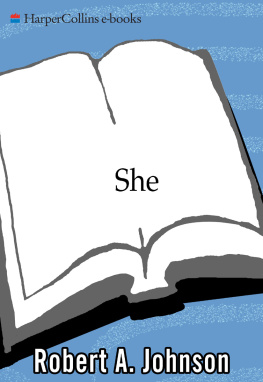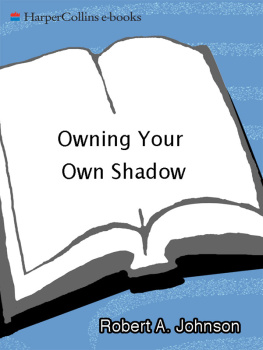She
Understanding Feminine Psychology
Revised Edition
Robert A. Johnson
To John A. Sanford
certainly the godfather
of this work
Contents
The Greek myth of Eros and Psyche is one of the most instructive stories there is on the feminine personality. It is an ancient, pre-Christian myth, first recorded in classical Greek times, having had a long oral tradition before that; yet it is relevant for us today.
This is not as strange as it might seem. Since human biology appears to be the same today as it was in Greek times, so also the unconscious psychological dynamic of the human personality is similar. Basic human needs, both physiological and psychological, have remained stable although the form in which those needs are satisfied may vary from time to time.
This is why it is instructive to go to the earliest sources to study the basic patterns of human behavior and personality. Their portrayal is apt to be so direct and simple we cannot fail to learn from them. Also we can begin to see the changes and variations peculiar to our own time.
THE ROLE OF THE MYTH
Myths are rich sources of psychological insight. Great literature, like all great art, records and portrays the human condition with indelible accuracy. Myths are a special kind of literature not written or created by a single individual, but produced by the imagination and experience of an entire age and culture and can be seen as the distillation of the dreams and experiences of a whole culture. They seem to develop gradually as certain motifs emerge, are elaborated, and finally are rounded out as people tell and retell stories that catch and hold their interest. Thus themes that are accurate and universal are kept alive, while those elements peculiar to single individuals or a particular era drop away. Myths, therefore, portray a collective image; they tell us about things that are true for all people.
This belies our current rationalistic definition of myth as something untrue or imaginary. Why, that is only a myth; its not true at all, we hear. The details of the story may be unverifiable or even fantastic, but actually a myth is profoundly and universally true.
A myth may be a fantasy or a product of the imagination, but it is nonetheless true and real. It depicts levels of reality that include the outer rational world as well as the less understood inner world.
This confusion concerning the narrow definition of reality may be illustrated by the thinking of a small child after a nightmare. A parent may say, to be comforting, It was only a dream; the monster was not real. But the child is unconvinced, and rightly so. To him it was real, as alive and real as any outer experience. The monster he dreamed about was in his head and not in his bedroom, but it had, nonetheless, an awesome reality, with power over the childs emotional and physical reactions. It had an inner reality for him that cannot and should not be denied.
Myths have been carefully studied by many psychologists. C. G. Jung, for example, in his studies of the underlying structure of the human personality, paid particular attention to myths. He found in them an expression of basic psychological patterns. We hope to do the same with our study of Eros and Psyche.
First we must learn to think mythologically. Powerful things happen when we touch the thinking which myths, fairy tales, and our own dreams bring to us. The terms and settings of the old myths are strange; they seem archaic and distant to us, but if we listen to them carefully and take them seriously, we begin to hear and to understand. Sometimes it is necessary to translate a symbolic meaning, but this is not difficult once we see how it can be done.
Many psychologists have interpreted the Eros and Psyche myth as a statement of the feminine personality. Perhaps it would be wise at the very beginning of this study to say that we are speaking of femininity wherever it is found, in men as well as in women. To confine this story to womens personalities alone would be to limit it severely.
Dr. Jung, in one of his most profound insights, showed that, just as genetically every man has recessive female chromosomes and hormones, so, too, every woman has a group of masculine psychological characteristics that make up a minority element in her. The mans feminine side Dr. Jung called the anima; the womans masculine side he called the animus .
Much has been written about the anima and animus and we will have more to say about both of them later. At this point, whenever we speak of the feminine aspects of the Eros and Psyche myth, we are speaking not only about women, but also about the mans anima, his feminine side. The connection may be more obvious to a woman, since femininity is her major psychological quality, yet there will also be something of a parallel to the interior feminine aspect of a mans psychology.
Our tale begins with the lineOnce there was a Kingdom. From this we know that we will be given vision and insight into that kingdom, which is our own inner world. If you listen to the old language of the tale you will see into that inner realm, seldom explored by the modern rational mind. A gold mine of information and insight is promised by a few wordsOnce there was a Kingdom.
THE STORY BEGINS
There is a king, a queen, and their three daughters. The two eldest are ordinary princesses, not very remarkable.
The third daughter is the very embodiment of the inner world and even bears the name Psyche, which means soul . She will take us on a journey to the inner world. She is as much of the mythic kingdom as she is of the earthly kingdom.
Do you know these three in yourself? Who can be unaware of the ordinary part of ones self and that special unearthly inner self who does so badly in the ordinariness of everyday life?
So great was the power of this extraordinary princess that people began saying, Here is the new Aphrodite, here is the new goddess who will take the place of the old one, drive her from her temple, and entirely supercede her. Aphrodite had to bear the insult of seeing the ashes of the sacramental fires in her temples grow cold and the cult of this new slip of a girl take her place.
Now, Aphrodite was the goddess of femininity who had reigned since the beginningno one knew how long. For her to see the rise of a new goddess of femininity was more than she could bear! Her rage and jealousy were apocalyptic and the whole course of our story is determined at this moment. To stir the rage or demand change of a god or goddess is to shake the very foundations of ones inner world!
THE MYTHIC ELEMENTS
The origins of the two goddesses, Aphrodite and Psyche, are interesting. Wielding a sickle, Cronus, the youngest and craftiest son of Uranus, the god of the sky, severed his fathers genitals, and flung them into the sea thus fertilizing the water and Aphrodite was born. Aphrodites birth was immortalized by Botticelli in his magnificent painting, the Birth of Venus: she, in all her feminine majesty, is being born upon a wave, standing on a shell. This is the divine origin of the feminine principle in its archetypal form, which may be vividly contrasted with the human birth of Psyche who was said to have been conceived by dewdrops that fell from the sky. What curious language! But this language is rich in psychological insight if you can hear its archaic, timeless message.
The difference between these two births, if properly understood, reveals the different natures of the two feminine principles. Aphrodite is a goddess born of the sea: she is primeval, oceanic in her feminine power. She is from the beginning of time and holds court at the bottom of the sea. In psychological terms, she reigns in the unconscious, symbolized by the waters of the sea. She is scarcely approachable on ordinary conscious terms; one might as well confront a tidal wave. One can admire, worship, or be crushed by such archetypal femininity but it is extremely difficult to relate to it. It is Psyches task, from her human vantage point, to do just thatto relate and soften the great oceanic, archetypal feminine. This is our myth.


